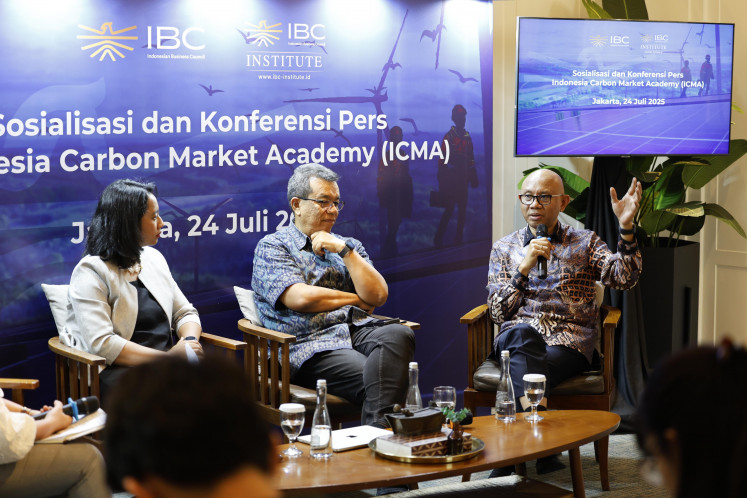Popular Reads
Top Results
Can't find what you're looking for?
View all search resultsPopular Reads
Top Results
Can't find what you're looking for?
View all search resultsTaxing sin goods: A strategic approach for public health and revenue generation
Indonesia is experiencing a surge in obesity rates, driven in part by the increasing consumption of sugar-sweetened beverages.
Change text size
Gift Premium Articles
to Anyone
T
he global community has increasingly recognized the public health and economic benefits of taxing “sin goods”. The World Health Organization (WHO) defines sin goods as products harmful to society's health, which include alcohol, tobacco and sugar-sweetened beverages (SSBs). With rising levels of alcohol consumption and increasing obesity rates worldwide, including in Indonesia, strategically implementing these taxes can offer significant advantages.
Sin taxes are not only a substantial source of government revenue but also an effective public health strategy to reduce the consumption of harmful products. The WHO's 2023 “Global Report on the Use of Alcohol Taxes and Sugar Beverage Taxes” provides compelling evidence of the effectiveness of sin taxes in reducing the consumption of harmful products and improving public health outcomes. According to the report, alcohol and SSB taxes have been successfully implemented in various countries, leading to significant reductions in consumption, improvements in public health and increased government revenues.
Indonesia faces significant public health challenges related to the consumption of sin goods. The prevalence of smoking in Indonesia is among the highest in the world, with over 60 percent of men and nearly 5 percent of women reported to be smokers (WHO, 2020). Alcohol consumption, though lower compared with some other countries, is on the rise, particularly among young people. Additionally, Indonesia is experiencing a surge in obesity rates, driven in part by the increasing consumption of SSBs (Health Ministry, 2023). These trends pose significant health risks and will impose economic burdens on the country’s healthcare system if not controlled.
The primary goals in proposing the implementation of sin taxes are to improve public health and increase state revenue. The impact on public health aims to encourage citizens to choose healthier alternatives by reducing the consumption of sin goods. Simultaneously, it would also generate additional revenue for the state budget. The revenue generated from these taxes can be reallocated to support health and education programs, providing an overall positive impact on society.
Sin taxes serve as a means to generate revenue that can help countries expand their expenditures by providing additional funding. This will allow Indonesia to allocate financial resources to public spending without reducing other expenditures or destabilizing budget balances. This is particularly relevant in situations where the country needs more money to fulfil its commitments to public spending on citizens’ healthcare systems.
Currently, Indonesia imposes excise taxes on alcoholic beverages, but the rates are relatively low compared with international standards. Increasing the excise tax rates based on alcohol content, with higher rates for beverages with higher alcohol content, is supported by evidence from the WHO report, which indicates that higher taxes on high alcohol-content beverages are more effective in reducing consumption.
This approach is expected to lead to a significant reduction in alcohol consumption, particularly among young people and heavy drinkers, resulting in decreased alcohol-related health issues such as liver disease, accidents and violence.



















